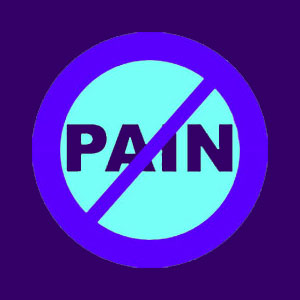
A pain specialist is a doctor who focuses on symptom management and chronic pain relief. This is a relatively new specialization in the healthcare profession with practitioners coming from a variety of medical backgrounds. The most common type of pain management doctor is an anesthesiologist, but many neurologists, physiatrists and even psychiatrists choose this specialty.
There are few, if any, medical specialties which offer such a high profit margin for such little work. Pain doctors rarely get their hands dirty with complicated diagnostics or patient relations, instead concentrating on distributing pills and injections, then moving on to the next client.
Chronic Pain Specialist
Many back pain patients resort to using one of these pain management specialists after several unsuccessful attempts at curing their spinal torments. It is very common for a patient to try traditional medical care first, then alternative care, then return to the last resort of medical pain management when all else fails. Once involved in a pain control program, the patient has a slim chance at actually curing their symptomatic conditions.
Most patients will instead endure rounds of various oral medications and possibly multiple injections into the symptomatic parts of their anatomy. Eventually some patients may be recommended for surgery, while others may simply be held on a short leash in symptom management long-term. Few will escape from the drug therapies easily or without possible health complications.
Pain Management Interventions
The most common forms of treatment provided by these specialists are pain relief drugs. These can be injected or taken orally. Many drugs are actually anesthetics that have lasting effects on nerves and other affected structures. All these drugs have health risks and some are very addictive.
Some pain doctors also use alternative techniques such as electrotherapy. If you have a choice, try to stick to treatments that will not cause more harm than good.
Treatment programs used by pain management doctors are almost always symptomatic treatment routines. This means that the treatment reduces the severity of the symptoms but does nothing to cure the underlying causative condition. This type of therapy is great and humanitarian for patients with untreatable physical pain conditions. However, this situation represents the gross minority of all pain management patients.
Many patients are either psychosomatic pain sufferers who have been misdiagnosed or patients who have simply given up on finding a cure and will settle for the numbing effects of these powerful pain relief drugs. A few patients will do anything just to avoid the potential horrors of spinal surgery. Many have become addicted to the pain drugs and will risk their lives to stay in treatment. Their addiction has actually replaced the pain as their primary healthcare motivation. It is a shame.
Pain Specialist Analysis
I have mixed feelings about this particular sub-specialty of medicine. On one hand, these practitioners do provide a much needed service to many suffering patients. Back pain relief is better than continual suffering, if the condition can not be cured. On the other hand, these doctors have elevated pain to a condition unto itself.
Pain is not a disease. Pain is a symptom. Pain is always the result of some other physical or psychological process. Ignoring this causative process is bad science and does nothing to truly help the patient long-term.
If you are in the minority of patients with continuous pain from a physical injury or disease, then this type of doctor may be for you. If there is any hope that your condition can be truly resolved, avoid pain management and work towards a real cure. A cure equates to freedom while pain management is utter dependence. Life is too short and too sweet to become a pharmaceutical slave.
Patients who do require symptom management may want to explore alternative approaches to care, including TENS, acupuncture, massage, hydrotherapy, meditation and other non-pharmaceutical methods. All of these are detailed in the back pain treatment section of this website.





